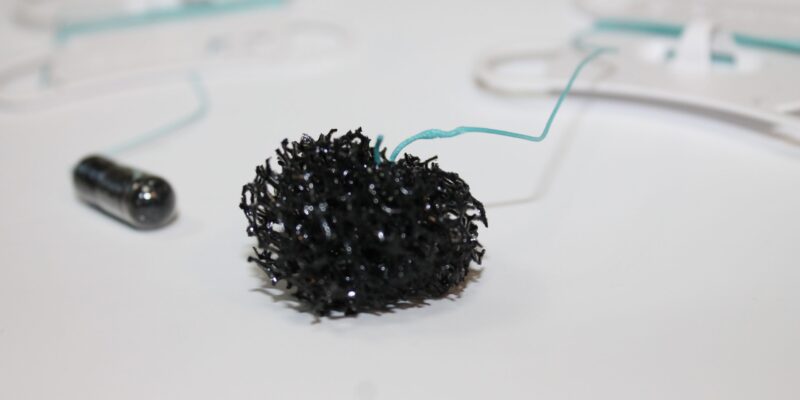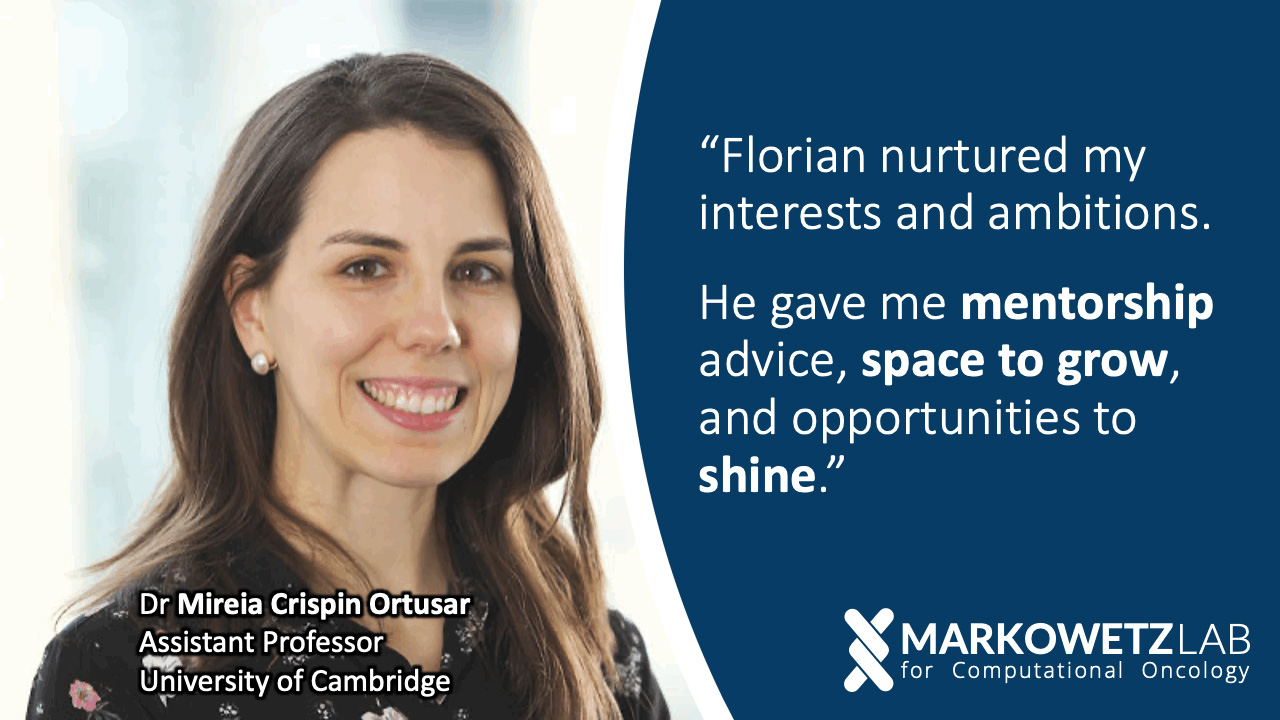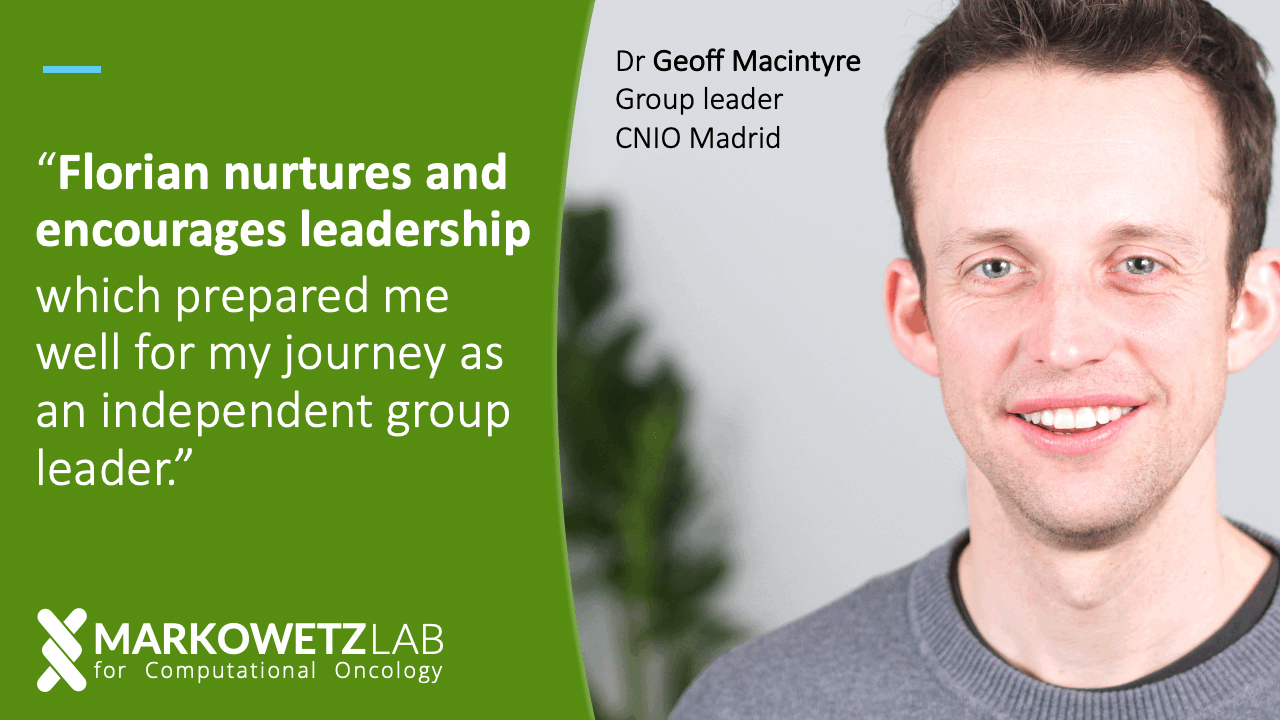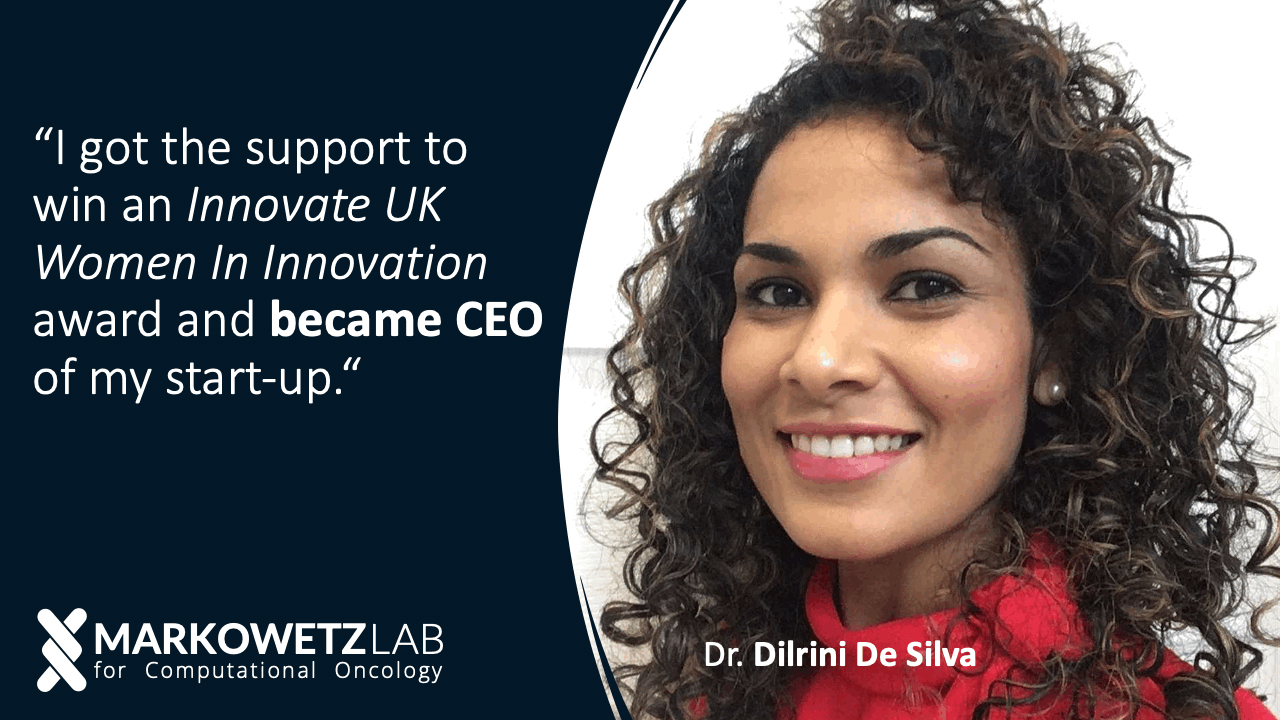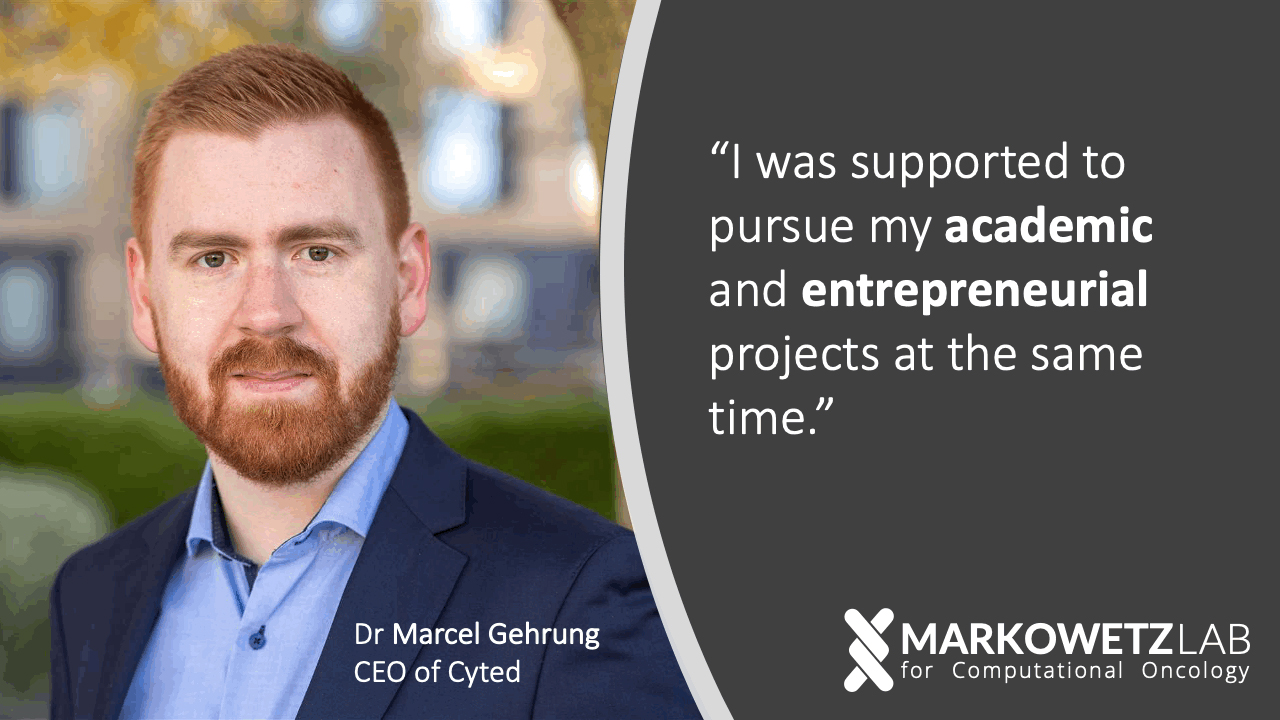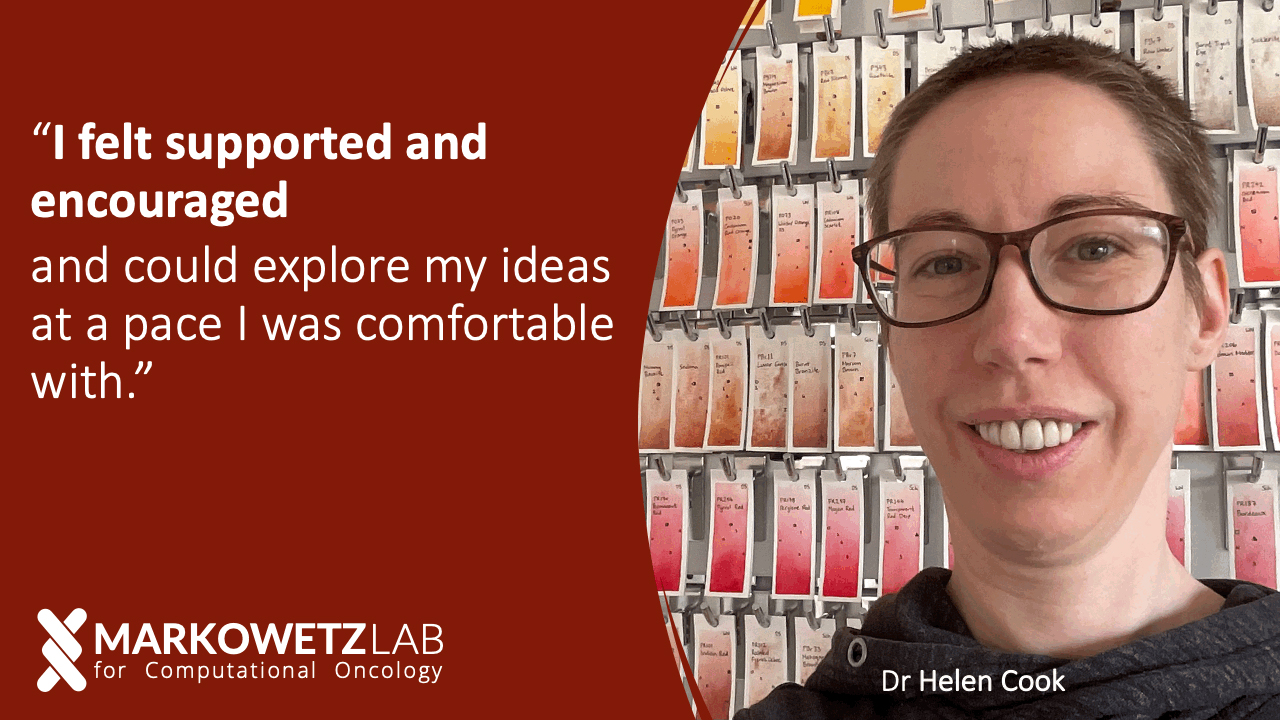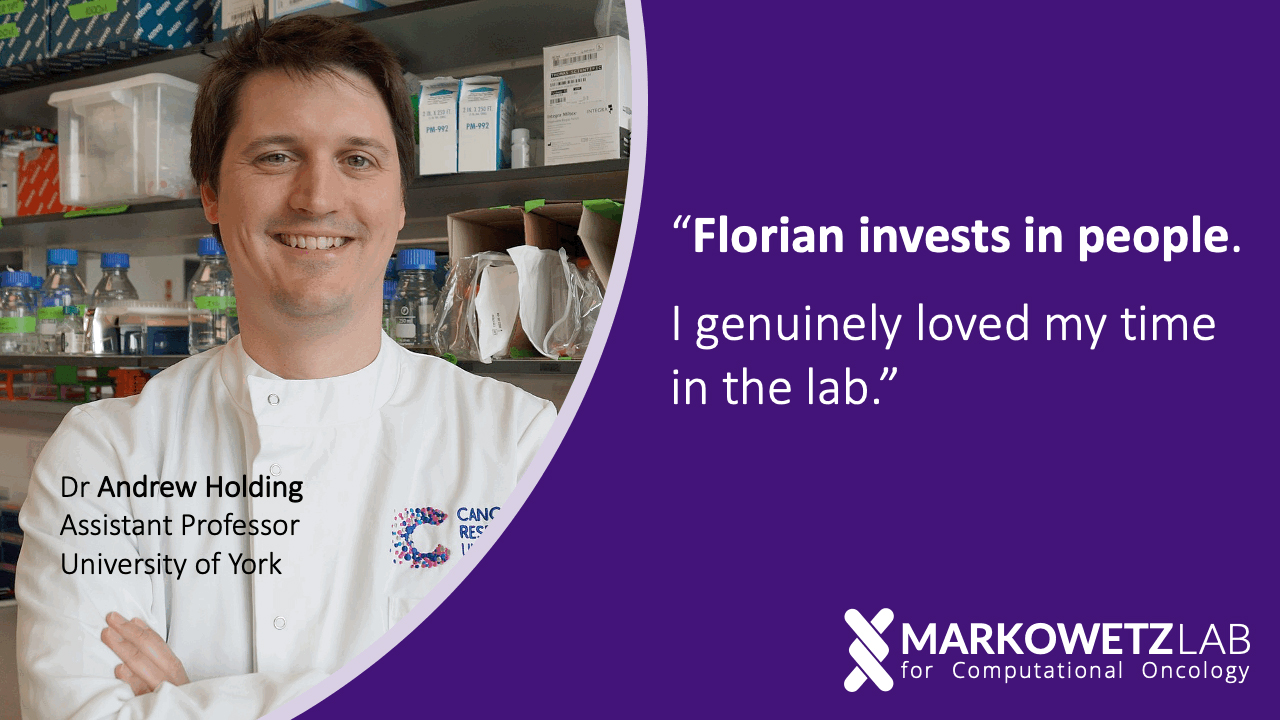Markowetz Group
Computational oncology
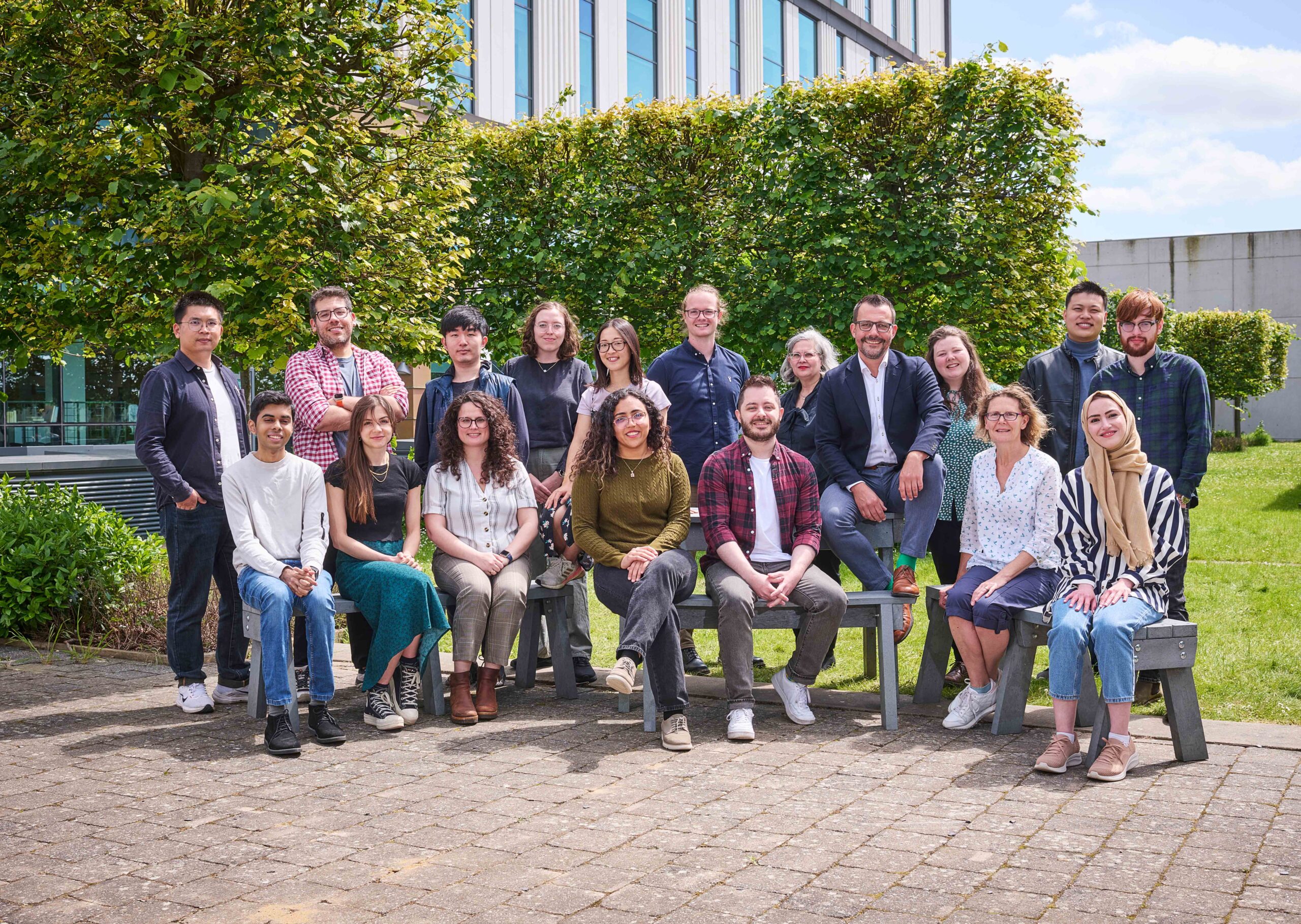
We develop technologies for doctors to make better decisions faster.
We tackle some of the most deadly cancers with genomes that look like a chaotic mess of missing and redundant parts – like ovarian, oesophageal and pancreatic cancer.
We work on (1) understanding the mechanisms behind this genomic chaos; (2) how to target cancer weaknesses with therapies; (3) how to overcome resistance to treatment; and (4) how to spot cancers as early as possible.
The methods we use combine machine learning and AI with experimental techniques ranging from single cell sequencing to tissue imaging.

Professor Florian Markowetz
Senior Group Leader
Associate Director of Artificial Intelligence
Projects
Group Members
-
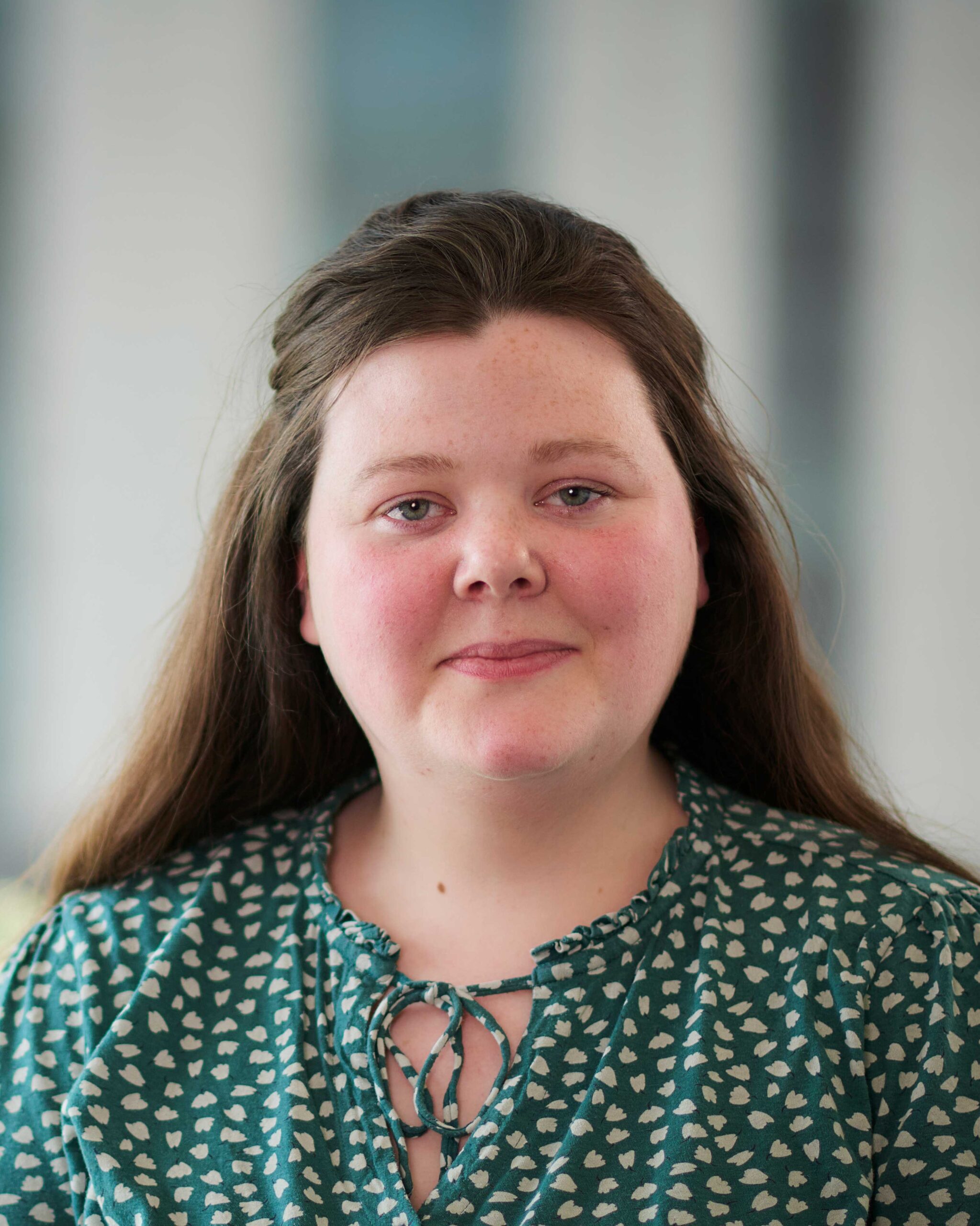
Amy Cullen
Principal Scientific Associate
-
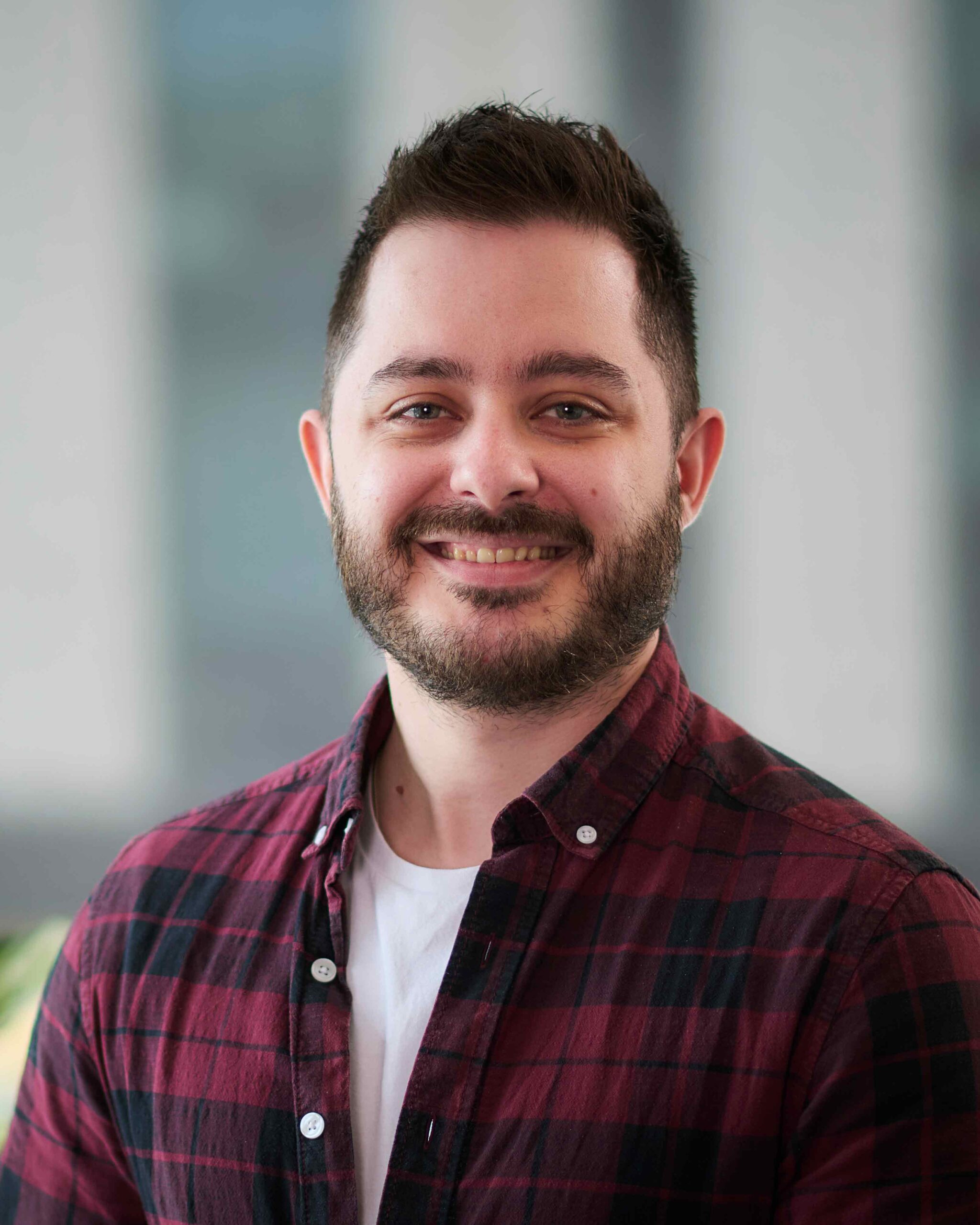
Philip Smith
Research Associate
-
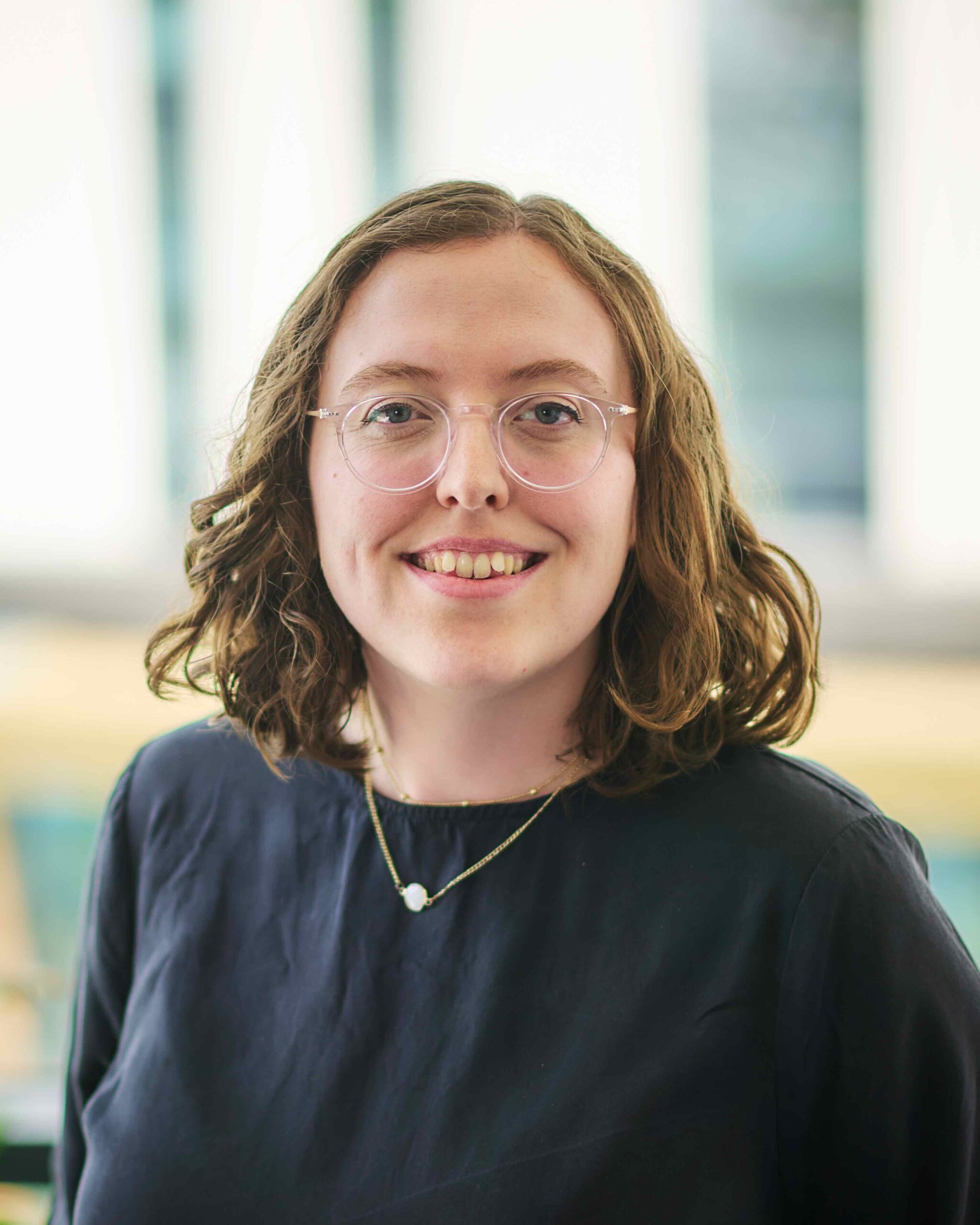
Kate Eason
Research Associate
-
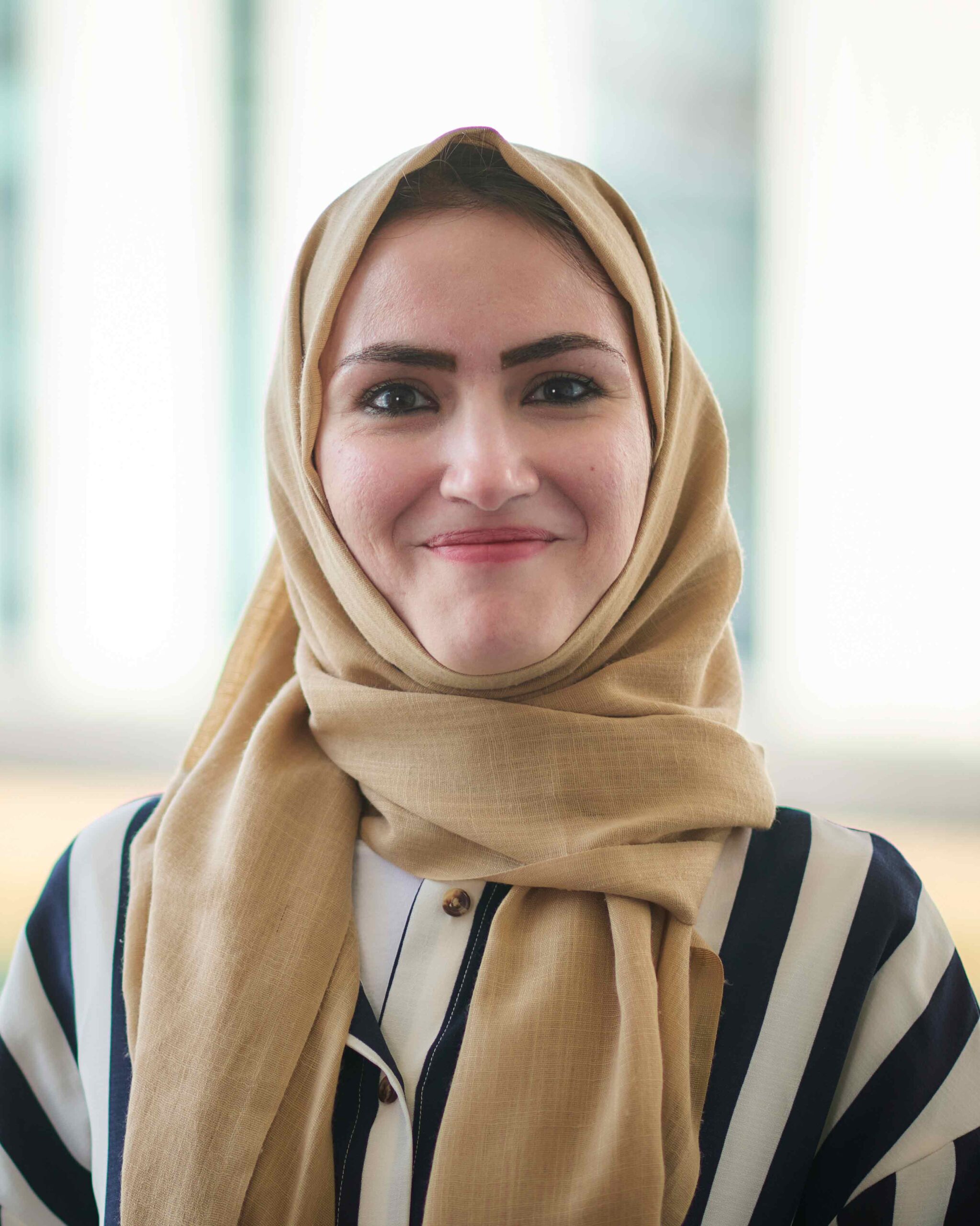
Raghad Al Jarf
Research Associate
-
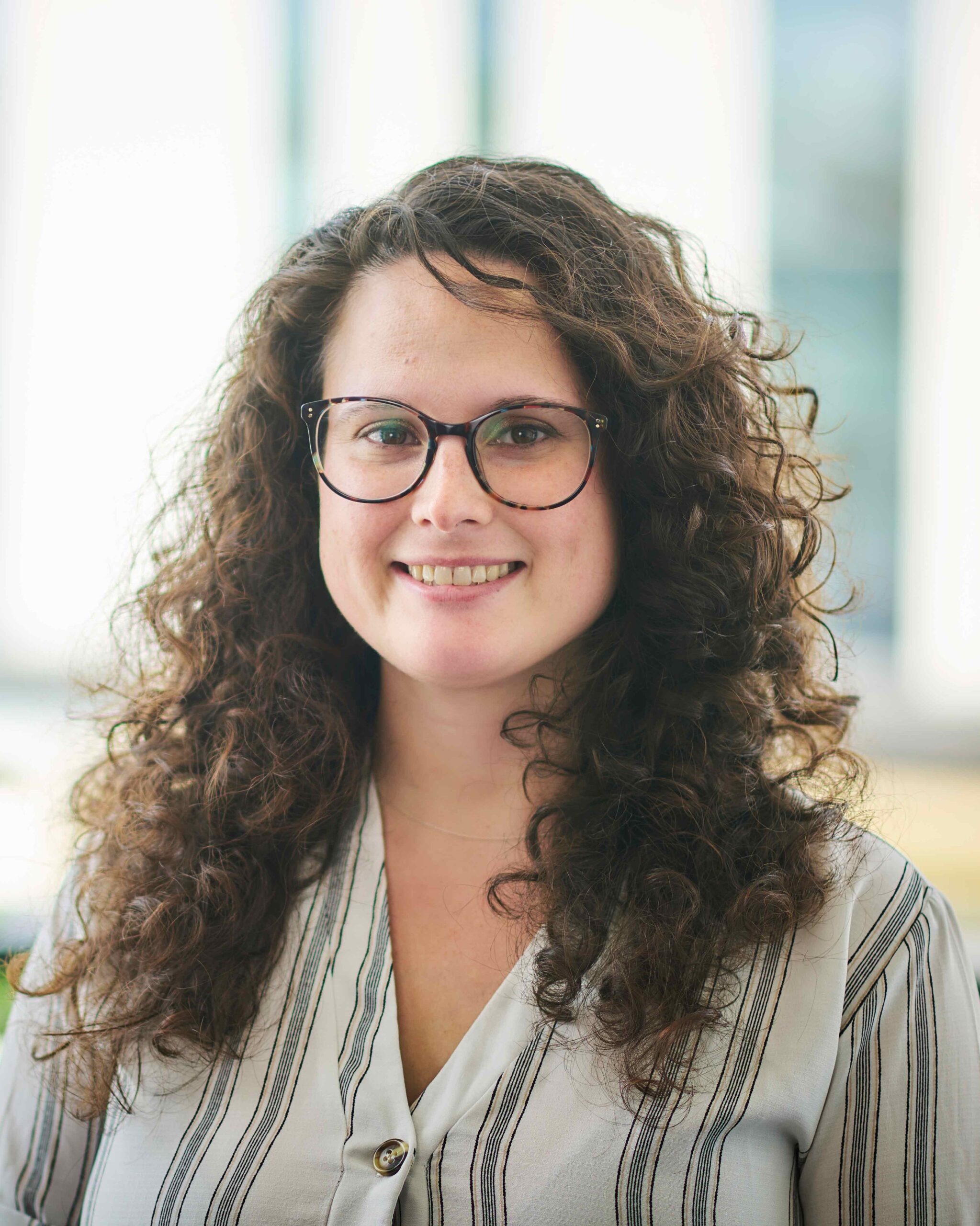
Raquel Manzano Garcia
Senior Bioinformatics Analyst
-
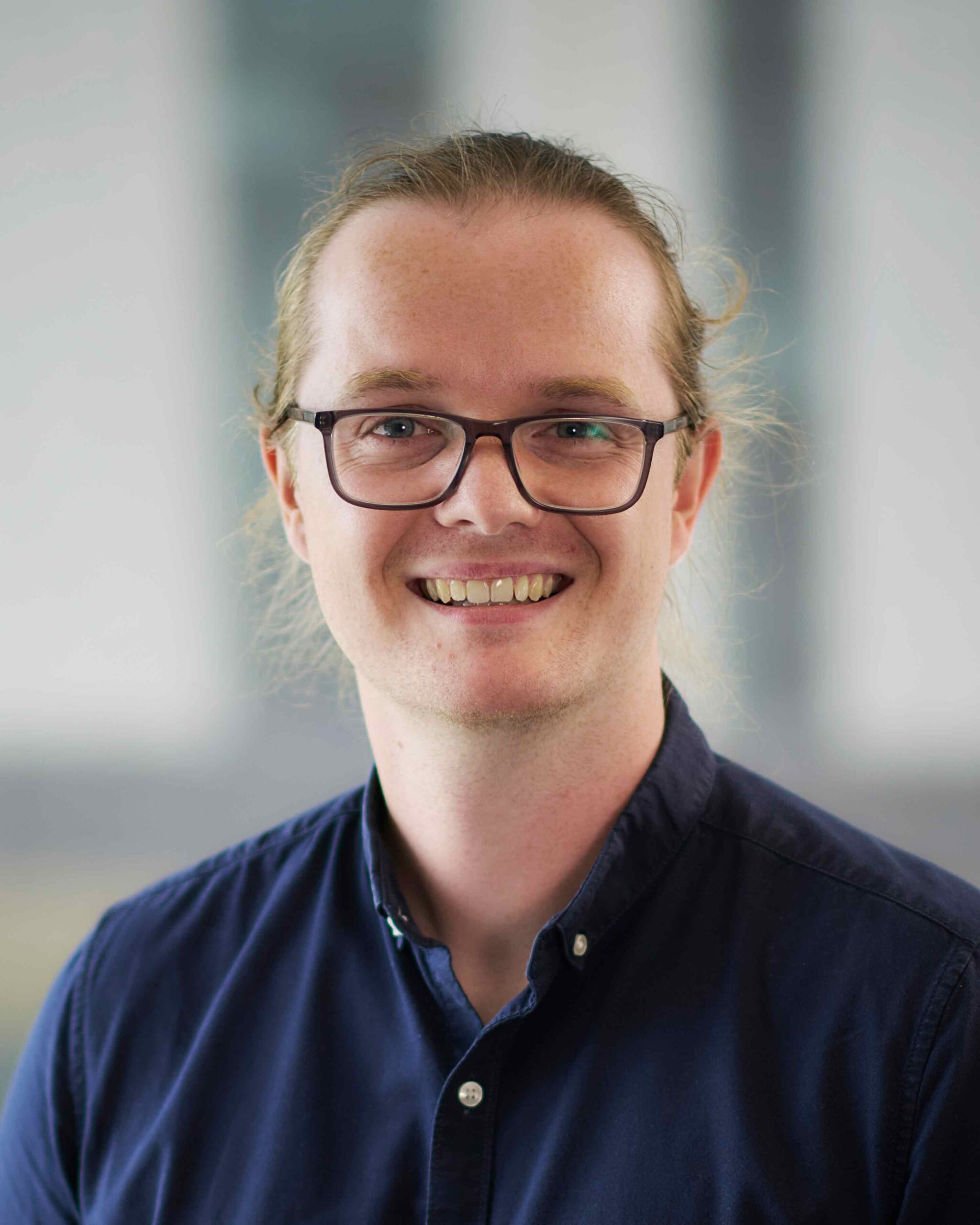
Ryan Blake
Scientific Associate
-
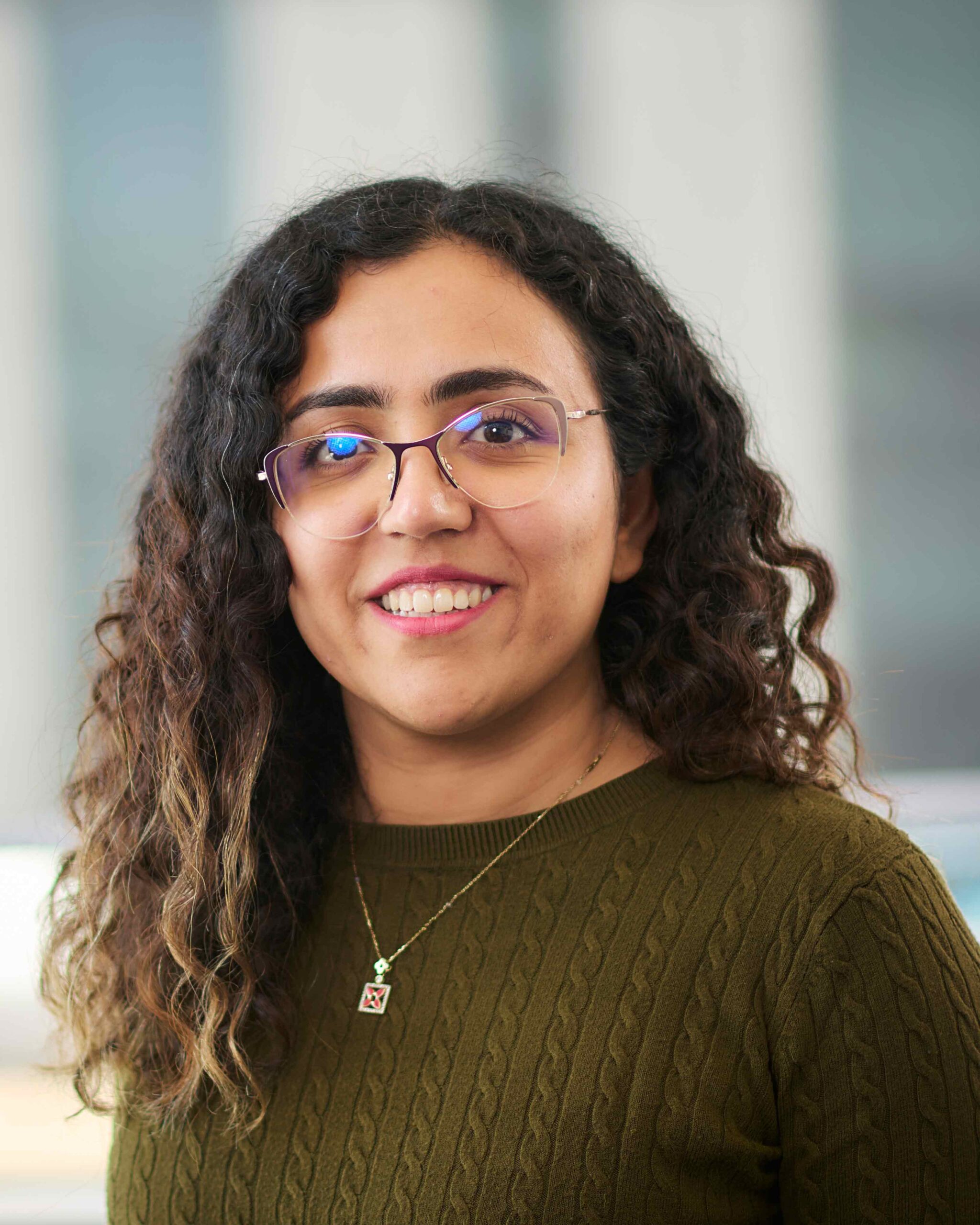
Shadi Shafighi
Research Associate
-
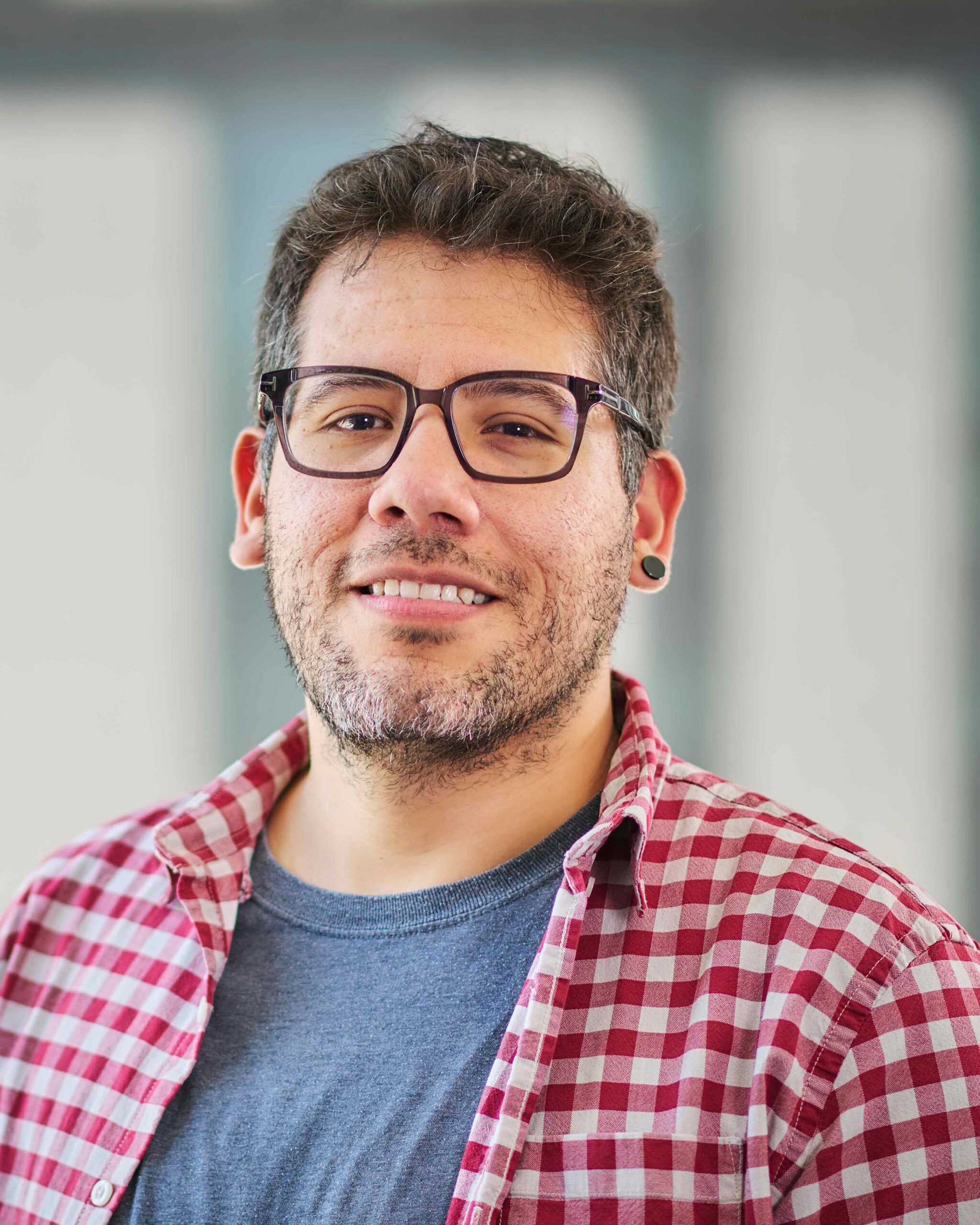
Daniel Guerrero Romero
Research Associate
-
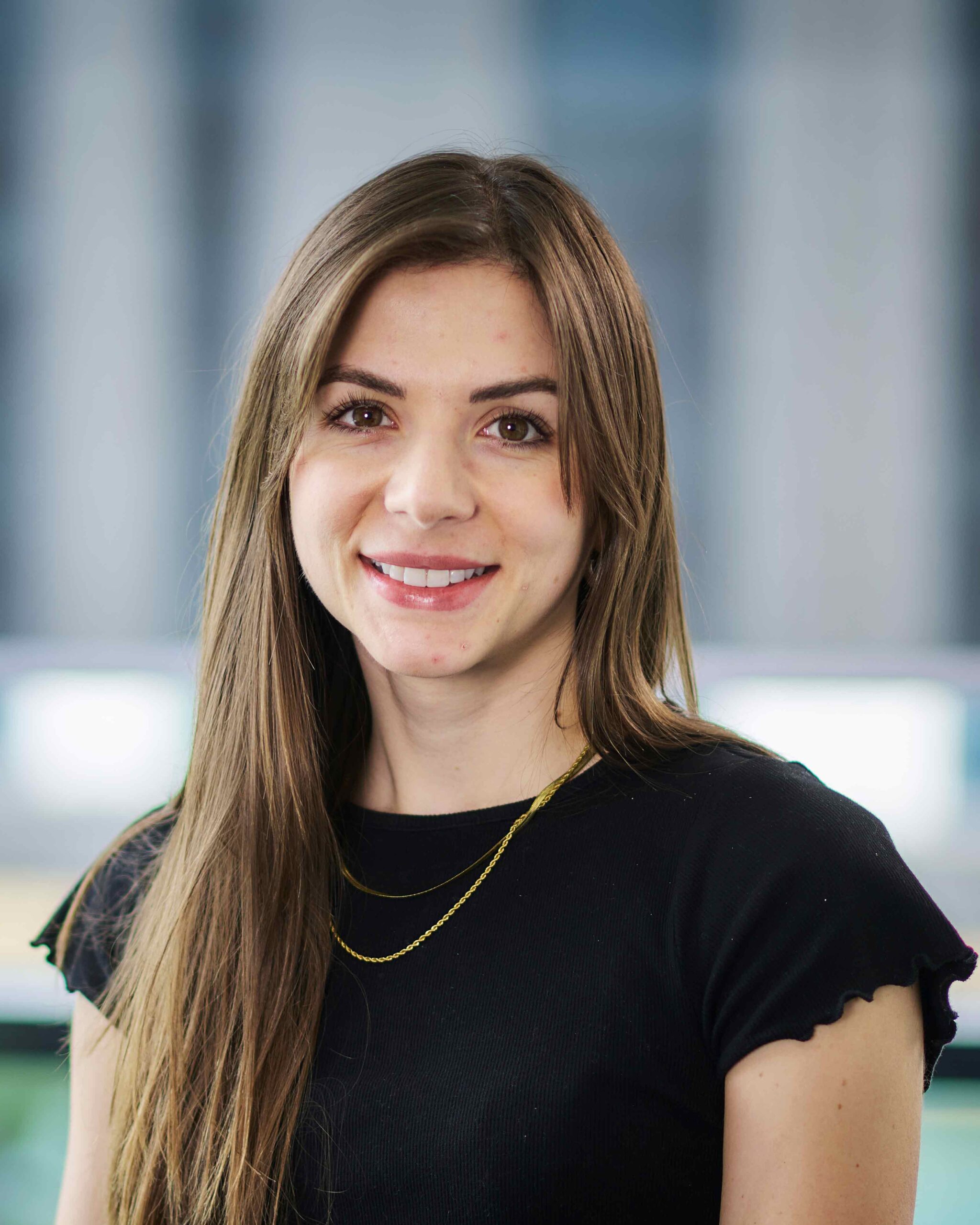
Emily Lythgoe
Postgraduate Student
-
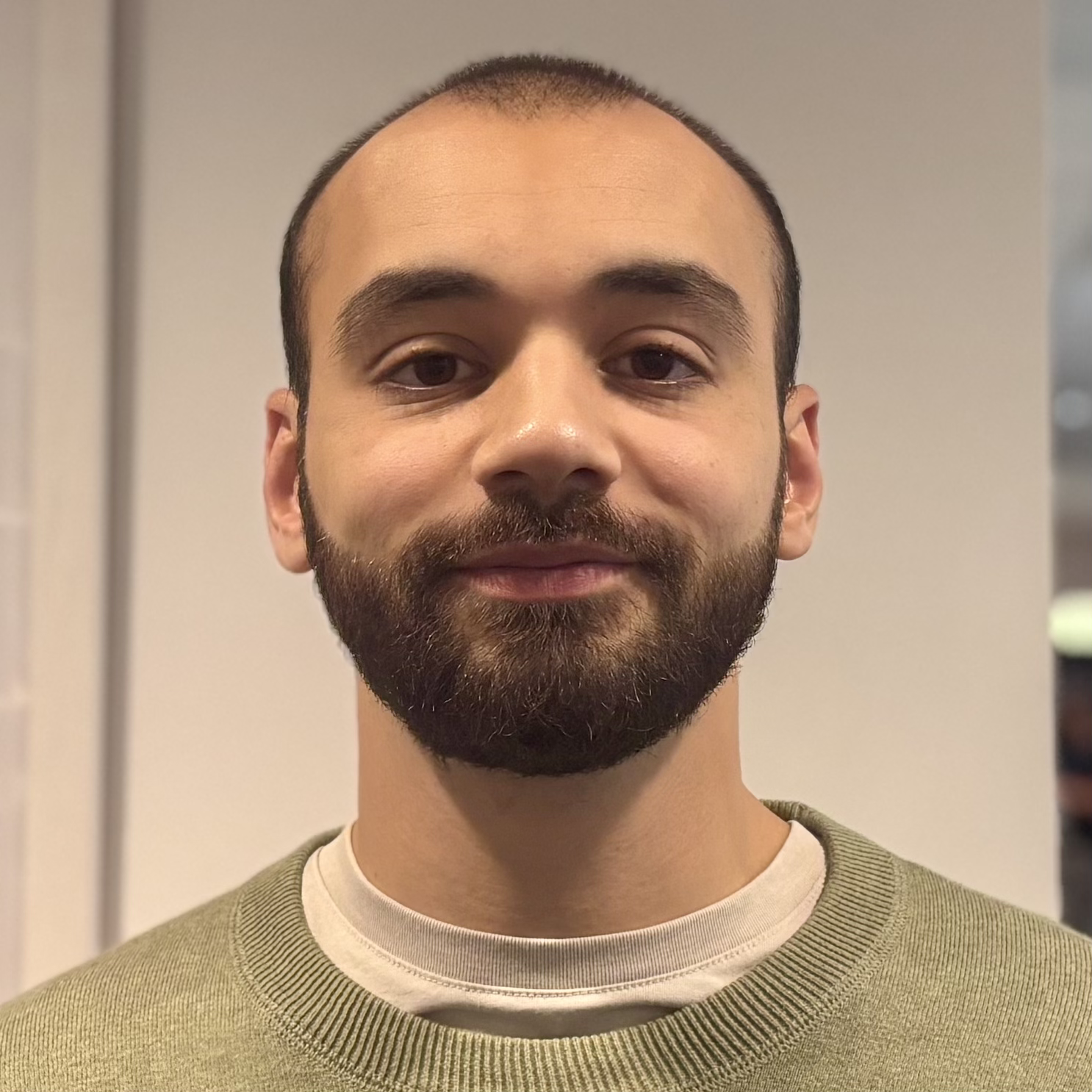
Rehan Zuberi
Postgraduate Student
-
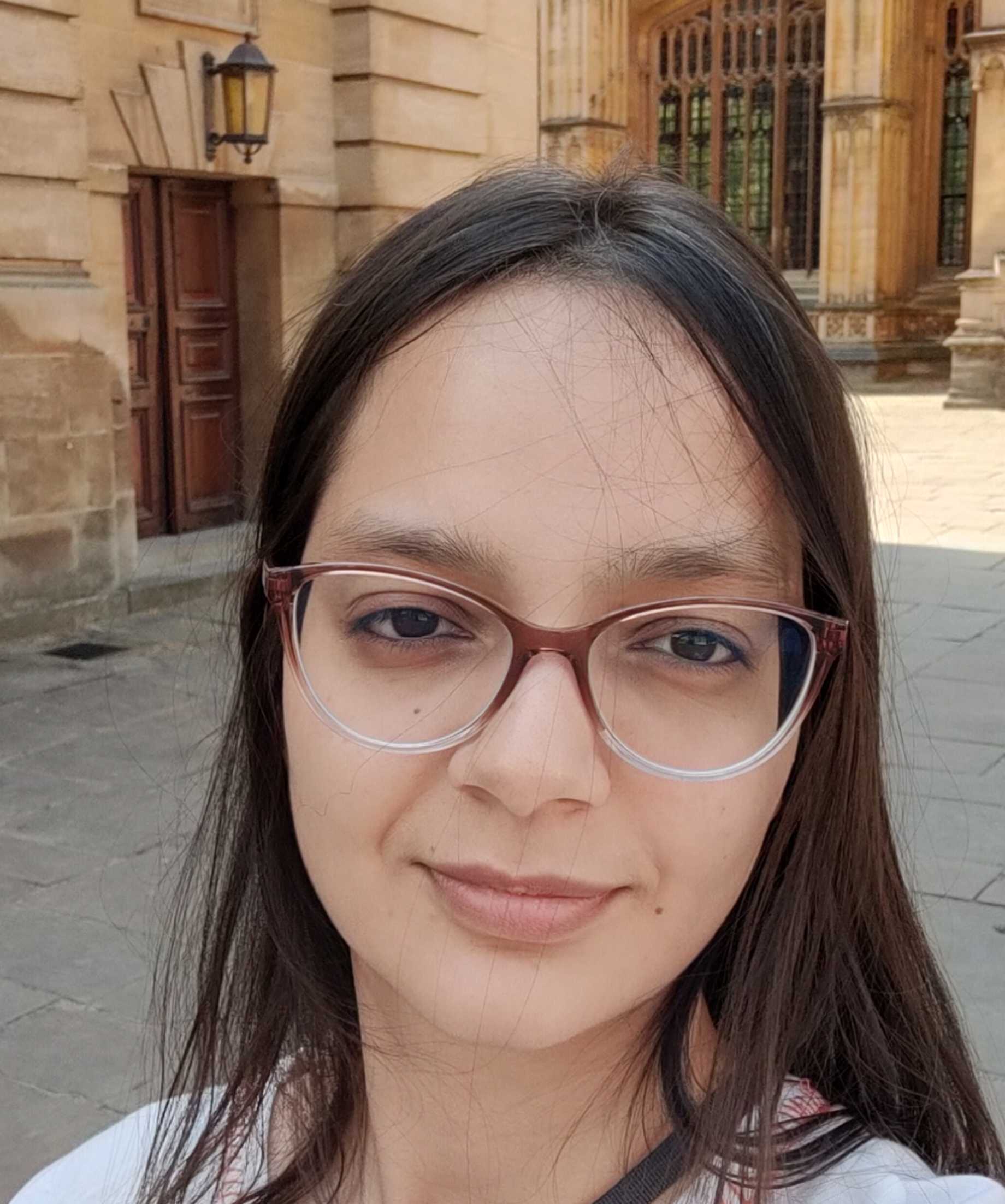
Anoushka Harit
Postgraduate Student
Related News
See all news-
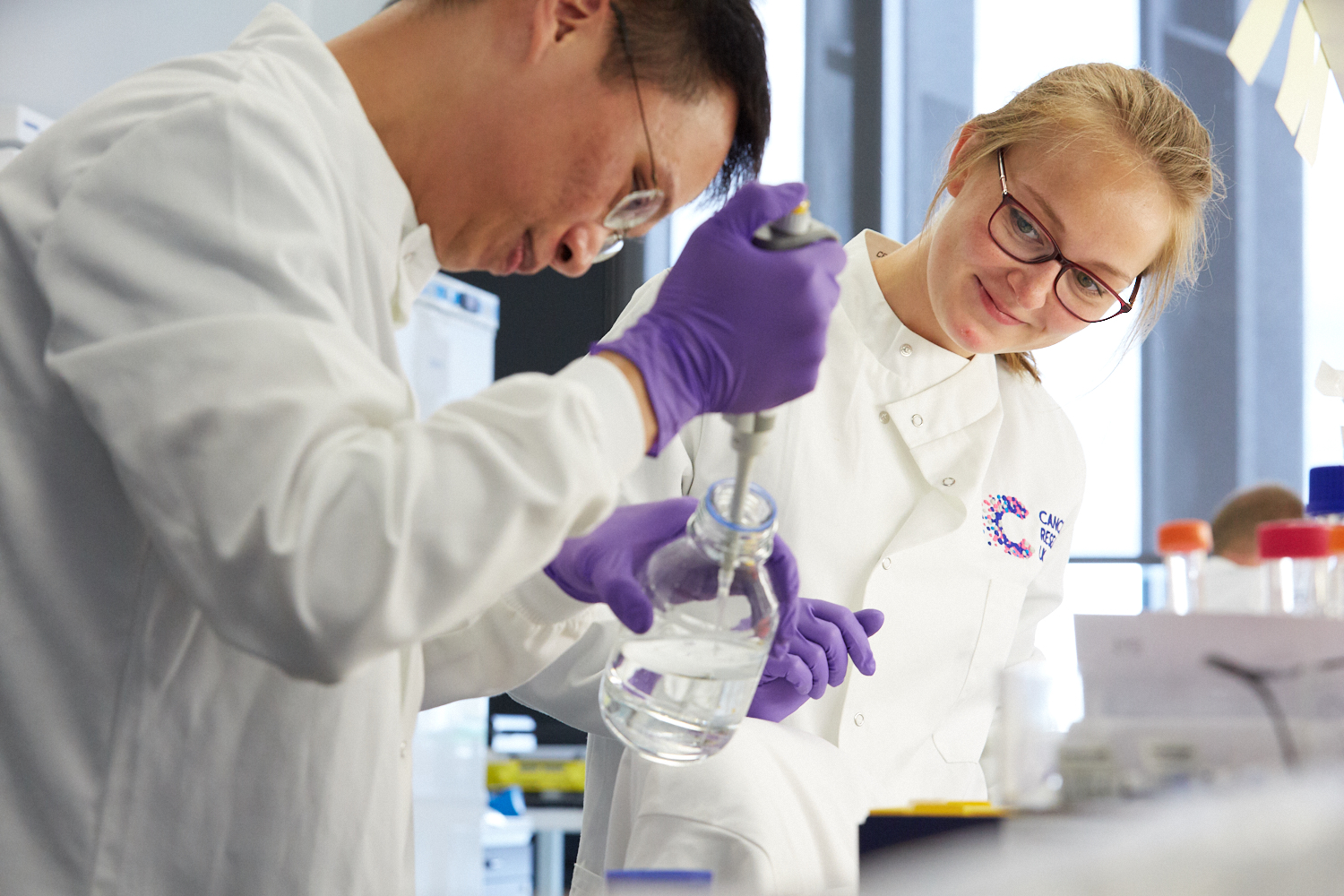
Scientists create test to predict chemotherapy resistance
23rd June 2025
Scientists at the Cancer Research UK Cambridge Institute have created a test which can successfully predict whether cancer will resist common forms of chemotherapy treatment.
Read more -
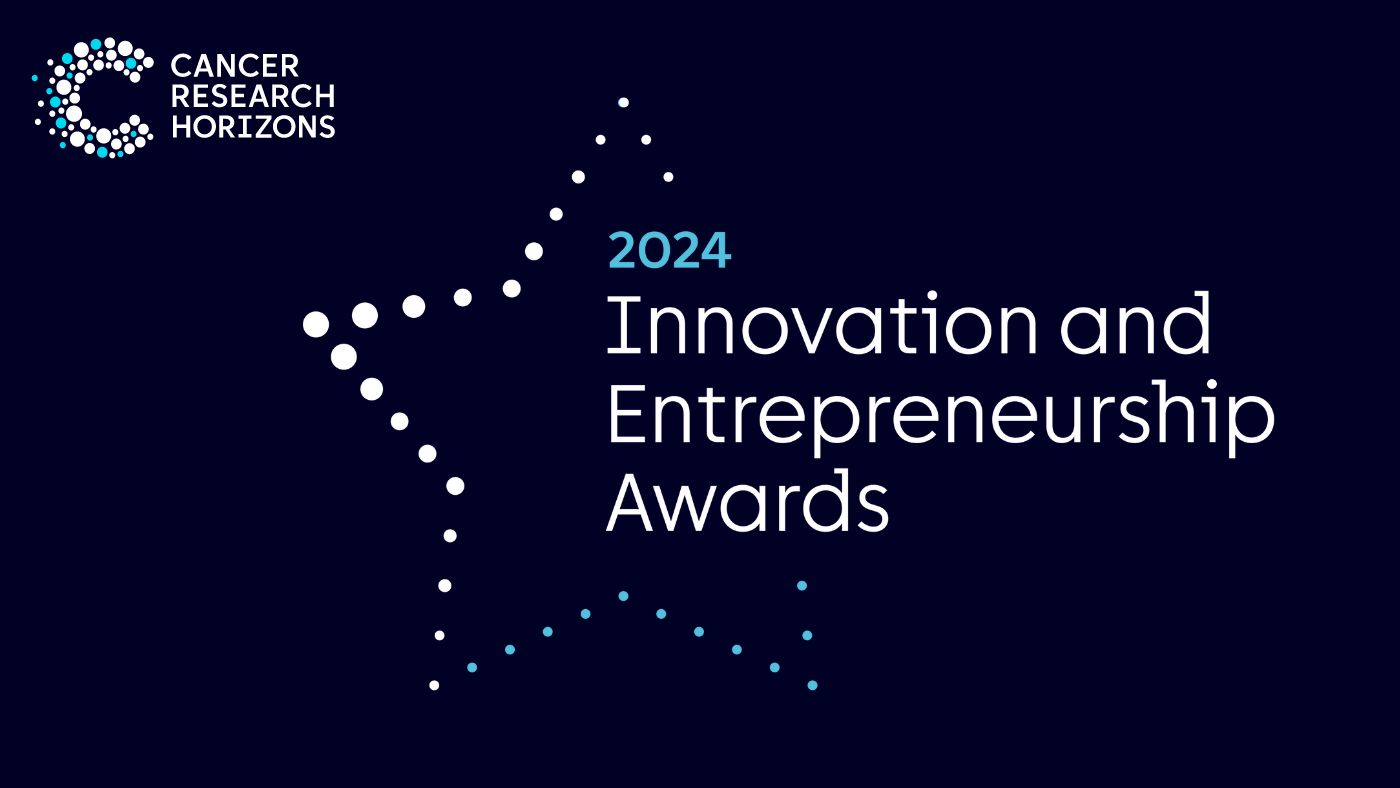
CI scientists shortlisted for Innovation & Entrepreneurship Awards
29th November 2022
Institute researchers and spin-out companies have been shortlisted for the Cancer Research Horizons Innovation & Entrepreneurship Awards.
Find out more -
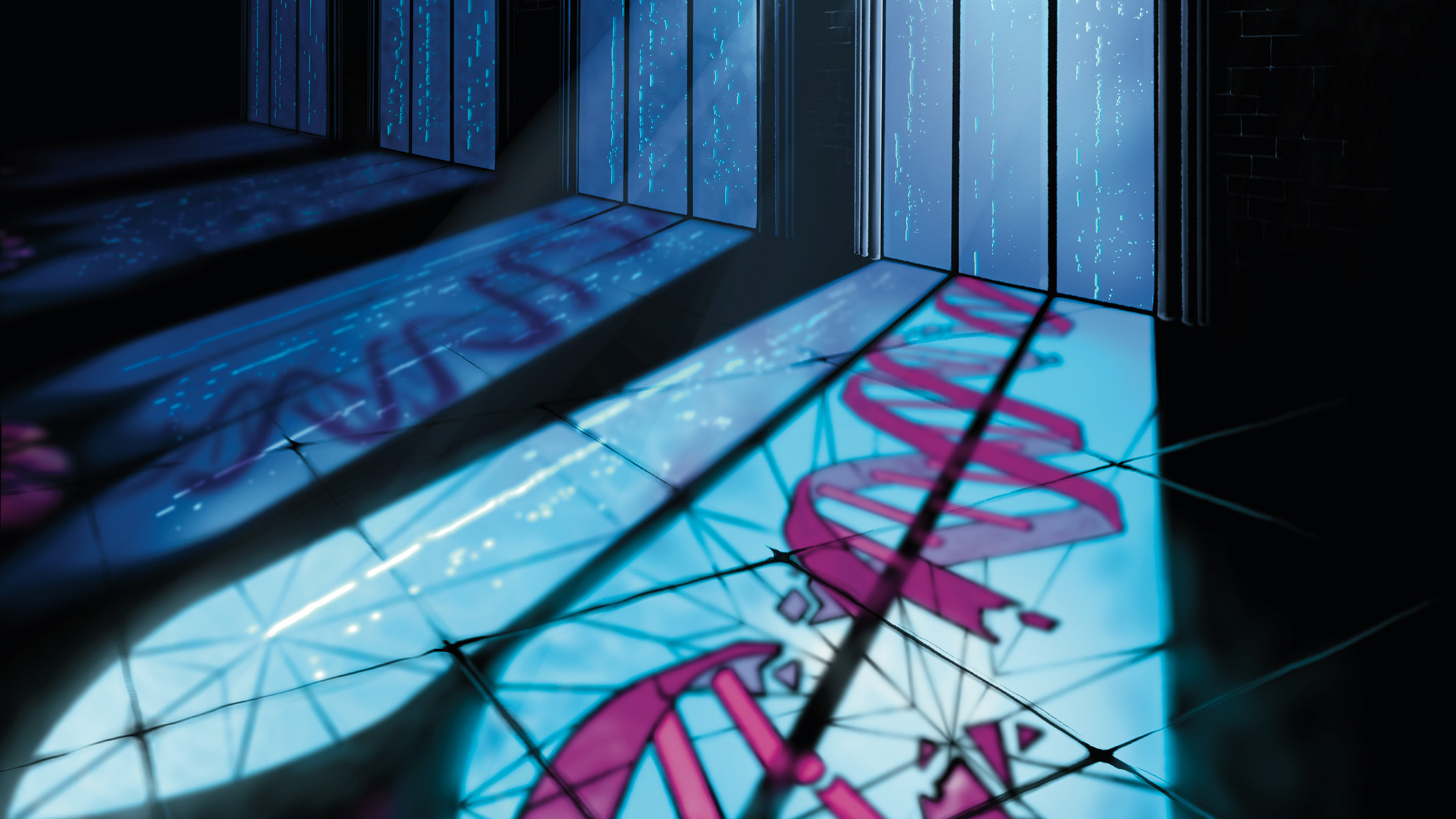
Tumour ‘signatures’ could allow scientists to provide more accurate treatment for deadliest cancers
15th June 2022
Scientists have found a way to identify and interpret ‘signatures’ that reveal the complex genetic causes of some of the deadliest cancers – which often have a survival rate of less than 10%.
Find out more
Come and shine
I support ambitious researchers to reach the next level of their careers. Over the last 5 years, the Markowetz Lab has created 3 spin-out companies and 5 PIs.
Our supportive and interdisciplinary lab is a great incubator for your career, wherever it takes you.
Our mission
Our mission is to build technologies for doctors to make better decisions faster
This means that our group is medically oriented, very applied (aka “translational”) and that we focus on projects for which we have a line-of-sight to real-world impact.
Core values
The success of our lab is built on our shared core values:
Collaboration: We work in a close scientific network and we contribute proactively to all collaborations.
Creativity: We do things differently (better, we think) and our approaches and questions are unique; we don’t just do what everyone else is doing.
Generosity: We are generous with time and support. We help each other and collaborators (without, say, immediately asking for an authorship in return).
People over projects: We shape the project to fit your strengths and ideas.
Rigour: We do things right. We walk the extra mile. If it looks like more work it probably is the right thing to do.
Transparency: We share code, drafts, data, and any other information freely inside and outside the group. We talk openly about your plans and projects.
Further reading
If you are interested in working in our lab, please reach out to lab members, nothing can replace these personal impressions. However, the following articles can be a start to learning more about the spirit of the lab.
You Are Not Working for Me; I Am Working with You
All models are wrong and yours are useless
Five selfish reasons to work reproducibly
Why science needs continuous leadership support
The care and maintenance of your adviser
Publications
See All Publications-
A pan-cancer compendium of chromosomal instability.
Markowetz Group
E-pub date: 1 Jun 2022
-
Triage-driven diagnosis for early detection of esophageal cancer using deep learning
E-pub date: 17 Jul 2020
-
scAbsolute: measuring single-cell ploidy and replication status
E-pub date: 17 Nov 2022
-
Clinically Interpretable Radiomics-Based Prediction of Histopathologic Response to Neoadjuvant Chemotherapy in High-Grade Serous Ovarian Carcinoma.
E-pub date: 1 Aug 2022
Laboratory Efficiency Assessment Framework (LEAF)
The Markowetz Group contributed to the Institute’s LEAF Silver accreditation, see the Sustainability webpage for more information.
